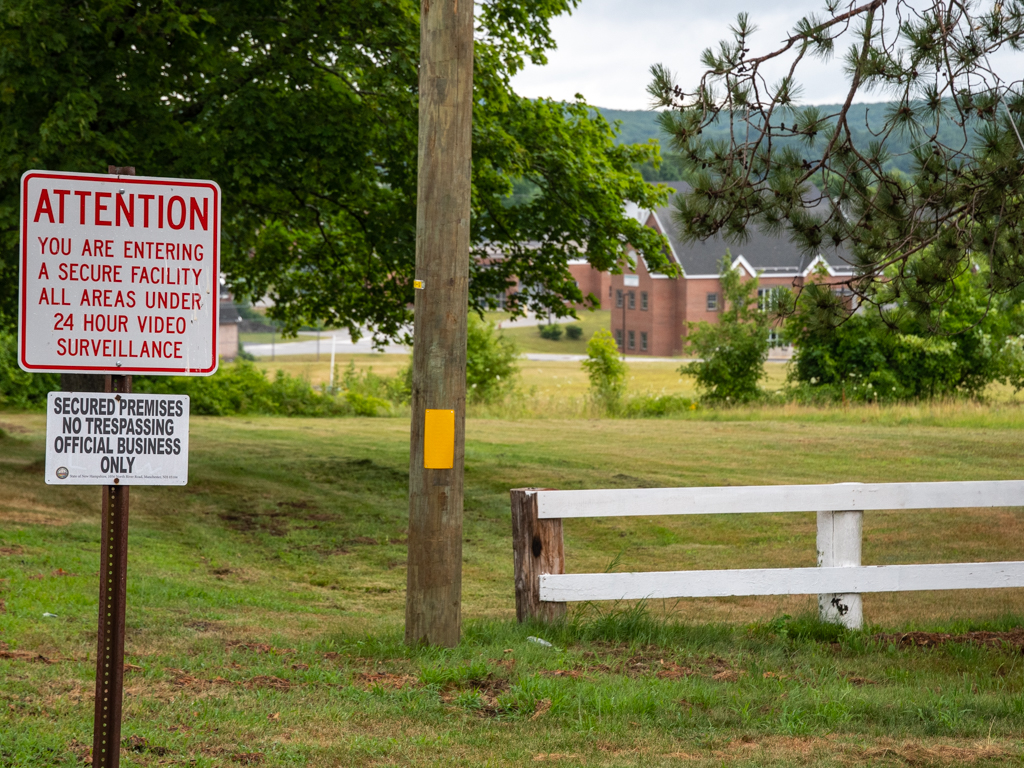By DAMIEN FISHER, InDepthNH.org
As officials with the New Hampshire Attorney General’s Office and the New Hampshire State Police are being called to give depositions in the Sununu Youth Services Center abuse case, the judge assigned to the civil lawsuits is questioning the role of the state’s top law enforcement agency.
Rockingham Superior Court Judge Andrew Schulman called out the conflict in the Attorney General’s Office prosecuting the former state employees who allegedly abused children, while at the same time defending the state in the civil lawsuit brought by the victims.
The Sununu Youth Services Center was formerly called the Youth Development Center or YDC where juveniles were incarcerated as delinquents.
“But you seem to be saying it’s fine if the person hasn’t been convicted yet, for the state to go to court, seek bail, put somebody on trial, stand up, tell the jury this guy committed aggravated felonious sexual assault on that day, and the state of New Hampshire can come into a different courtroom and say, oh, no, that never happened. The person we called the victim in the other courtroom is a liar. It just — that seems incongruous to me,” Schulman told lawyers for the state during a recent hearing.
It’s not yet clear if any representative from the Attorney General’s Office or the New Hampshire State Police will sit for depositions.
Michael Garrity, communications director for the New Hampshire Attorney General’s Office, said the matter is being considered.
“We have received the notices, are reviewing them, and will respond as appropriate,” Garrity said.
The deposition notice allows state employees to skip appearing if the state produces documents lawyers for the victims are seeking.
More than 1,300 alleged victims have come forward in recent years seeking justice for the horrific physical and sexual abuse they suffered while they were wards of the state. Since the abuse became public, the state has created a settlement fund worth $100 million to allow the victims to settle without going to trial.
The settlement has been harshly criticized by the lawyers representing the victims, who say it offers relatively small capped amounts that do not reflect the scope of the abuse. One victim has taken a settlement so far, worth about $170,000.
In the meantime, the state charged about a dozen former YDC employees with perpetrating the abuse. None of those men have yet gone to trial.
“They’re just kicking the can of the criminal cases right down the road because they want to deal with that the same way they’re not wanting to deal with the civil cases,” said Rus Rilee, one of the lawyers representing the victims.
The conflict between the state’s criminal prosecution and its defense in the civil cases is seen in sharp relief in the matter of Frank Davis’s competency.
Davis is seeking a hearing to determine if he can stand trial on the criminal charges after lawyers for the state in the civil case raised the possibility he was unable to sit for a deposition.
The civil trials could take years to get through New Hampshire’s court system, and David Vicinanzo, another attorney for the victims, said the state is furthering the civil delays by stalling the handover of evidence. Vicinanzo is seeking access to millions of pages of discovery the state has in its possession as part of the criminal investigations and prosecutions.
“The AG possesses the documents that were disclosed already to all the defense counsel in the criminal case,” Vicinanzo told Schulman. “And I don’t know why we wouldn’t get them so long as the grand jury material is removed.”






